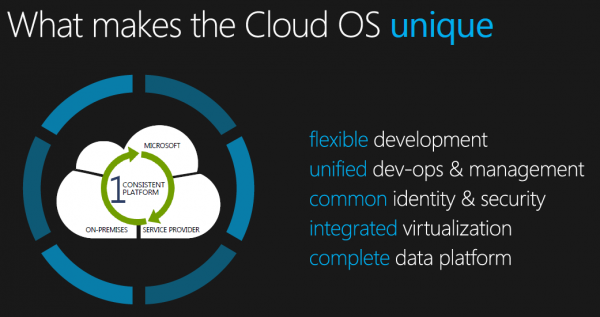
Apple Loses Lawsuit in Japan
August 31, 2012
Seattle Data Center Repaired Ahead of Schedule
September 5, 2012Today marks the release of Microsoft’s Windows Server 2012. A flexible Cloud OS designed to integrate multiple dedicated server platforms-opening the door for Cloud based web apps and increased flexibility.
As of today, Tuesday, September 4, Microsoft has released its final version of Windows Server 2012. The new data platform is a key component of Microsoft’s new Cloud OS system. The new operating system opens the door for all web-applications available on the cloud, be it private, public or hosted. Typically, a windows dedicated server hosting platform enables a user to run various web-applications while maintaining compatibility all across the board. In this case Microsoft has integrated a public, private and hosted server solution as three cohesive pieces of Cloud OS.
Microsoft’s Integrated Architecture
Windows Server 2012 aims to be consistent across all three computing components. This is no doubt another attempt to influence people to move towards cloud computing as the new and improved solution for server based operations. Within the last few years Microsoft has made strong efforts to redefine its marketing strategies. This affected the development process dramatically by not allowing engineers to write code until marketing teams had identified market trends, customer needs a problem areas within the data center world. During this period, engineers also assembled quality tools such as code and process checks. It wasn’t until late 2009 that Microsoft successfully integrated their public and private server teams into a unified Server & Cloud division. This integration has been manifested in Microsoft’s Windows Server 2012 creating one user interface, one set of development tools and one common identity within the commercial architecture.
Windows Server Redefined
Microsoft Touts Windows Server 2012 to be the ideal choice for companies looking to integrate their traditional hosted servers with any forthcoming cloud-based computing application. Customers no longer have to choose between multiple computing platforms, and can have the benefits of multiple systems within the new server system. Hopefully this will translate into costs savings for consumers as it will simplify needs within the data center market. Of course Microsoft hopes to make a huge splash paving the way for future cloud-based web apps on hosted servers. With all the media hype redefining the marketing strategy, we sincerely hope Windows Server 2012 is all it’s cracked up to be.


